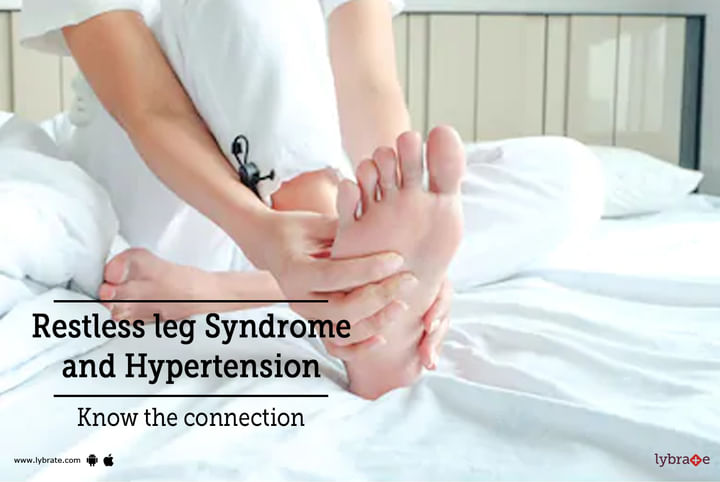Restless Leg Syndrome and Hypertension - Know the connection
Rest leg syndrome (RLS) is a common but serious condition, characterized by an irresistible urge of moving the legs, typically at night or in the evening. The condition typically affects your quality of sleep. Patients with severe RLS symptoms suffer from depression, fatigue, and other problems related to poor sleep quality, like insomnia.
Recent studies have suggested a link between Rest leg syndrome and hypertension. The study revealed that middle-aged women with frequent episodes of RLS were 41% more likely to have a high blood pressure than those without the condition. The prevalence of hypertension increased with the frequency of episodes of RLS symptoms.
The Link between Rest Leg Syndrome and Hypertension
To understand the effects of RLS on blood pressure better, a group of scientists and researchers analyzed data on over 65,000 female nurses of average age 50. The women were asked to describe the frequency of RLS symptoms if they had experienced it. They were also asked about their blood pressure readings.
After taking into consideration the various health and lifestyle factors that put you at risk of hypertension, such as obesity and smoking, RLS was linked to increasing the risk of hypertension by 6-14%.
One in every four women having 5-14 episodes of Rest leg syndrome every month, had high blood pressure in comparison to one in three women having over 15 episodes, and one in five women having no symptoms of RLS.
Researchers and doctors suggest that lack of sleep or poor quality of sleep caused due to RLS could be a reason for excessive, uncontrolled blood pressure. Even if it may not seem alarming, over time, poor or insufficient sleep can disrupt your body’s ability to regulate the stress hormones, causing your blood pressure levels to go up drastically. Therefore, it is imperative that you get a good night’s sleep and maintain healthy blood pressure readings.
Coping with RLS symptoms and hypertension
Now that you know the connection between Rest leg syndrome and high blood pressure, you can take certain measures to reduce the frequency of RLS symptoms and promote good sleep. Exercising, avoiding caffeine intake, taking warm baths and massages, practising relaxation techniques can help alleviate the symptoms of Rest leg syndrome, and reduce your chances of having high blood pressure.


+1.svg)
